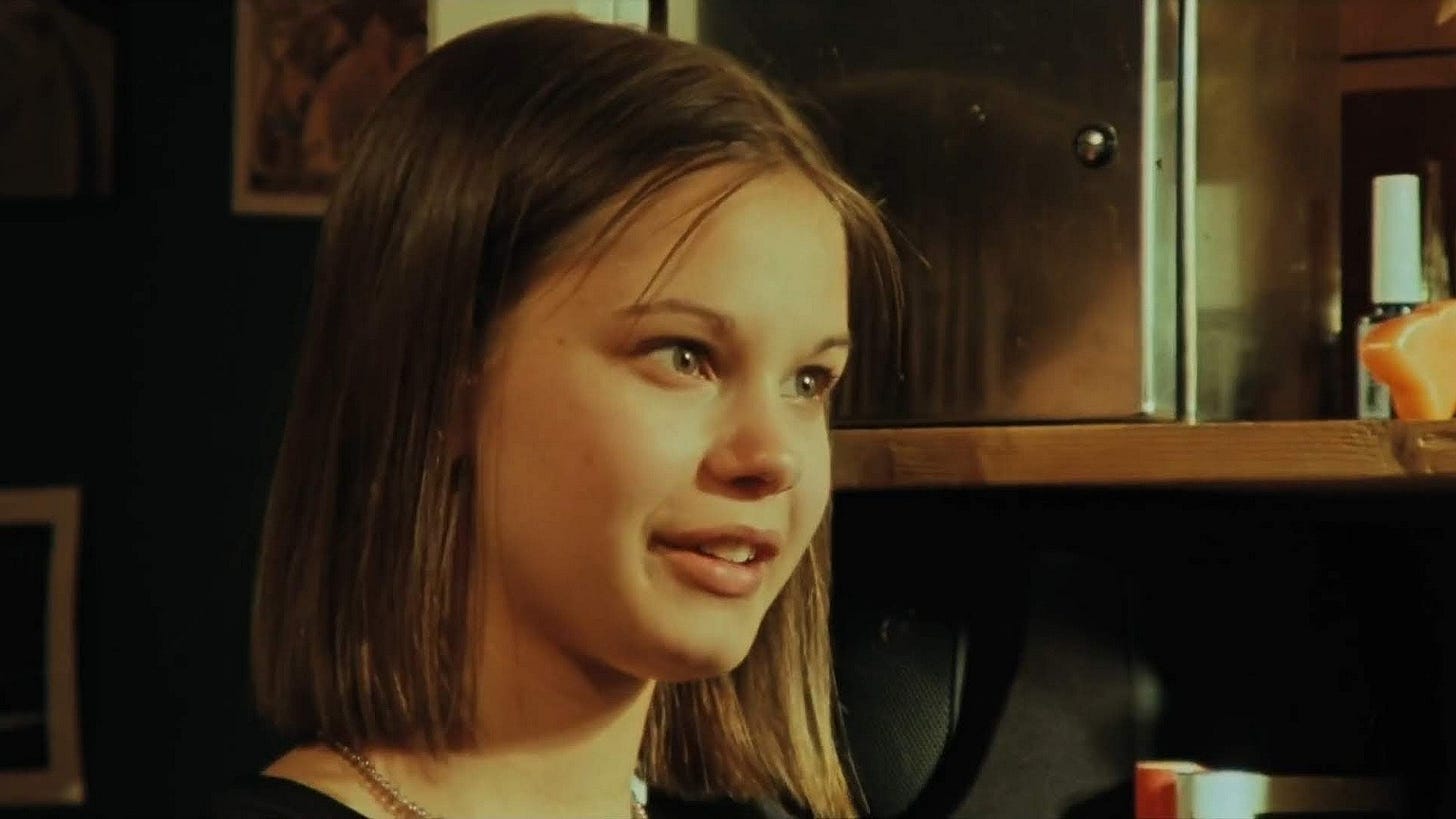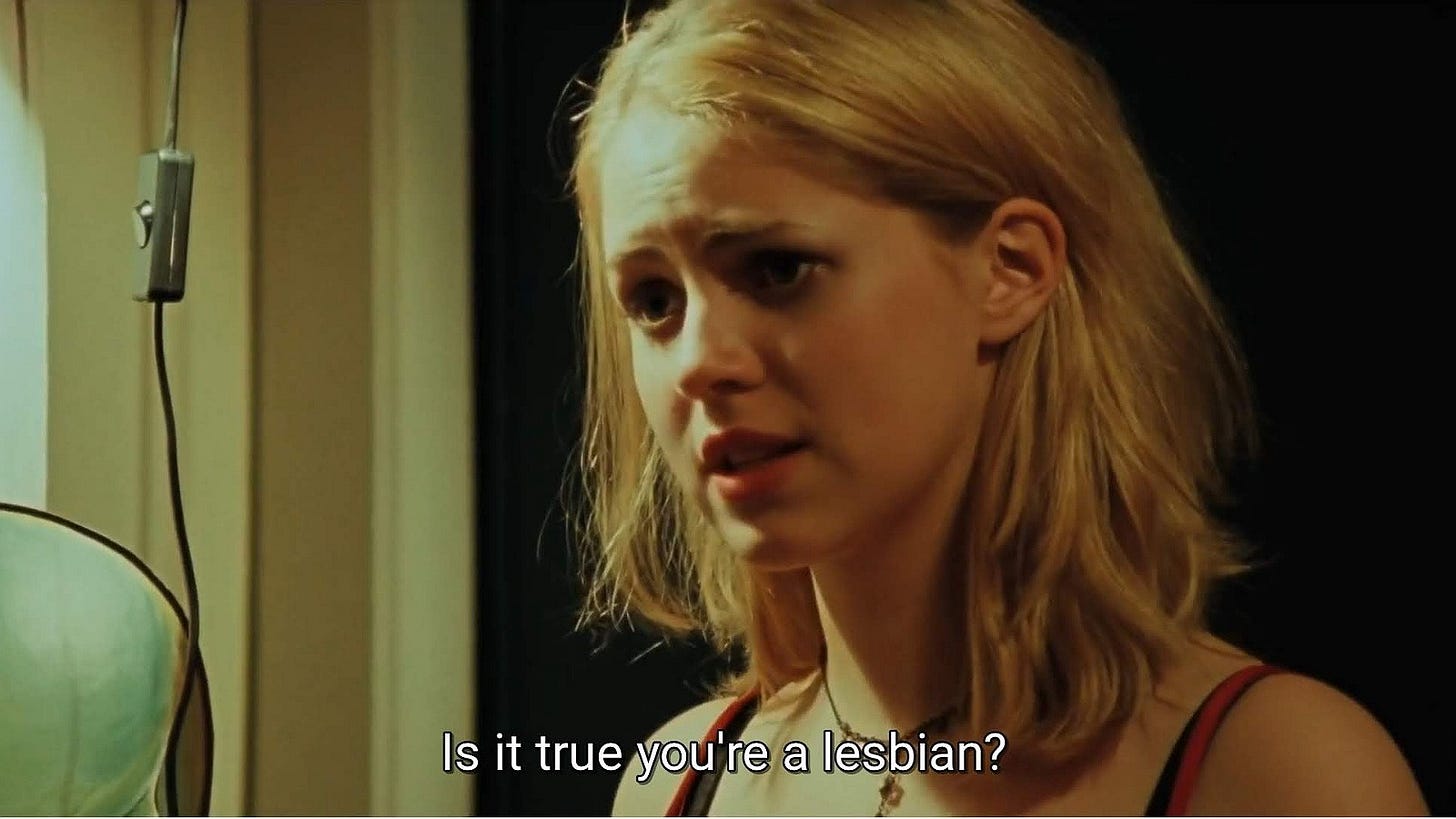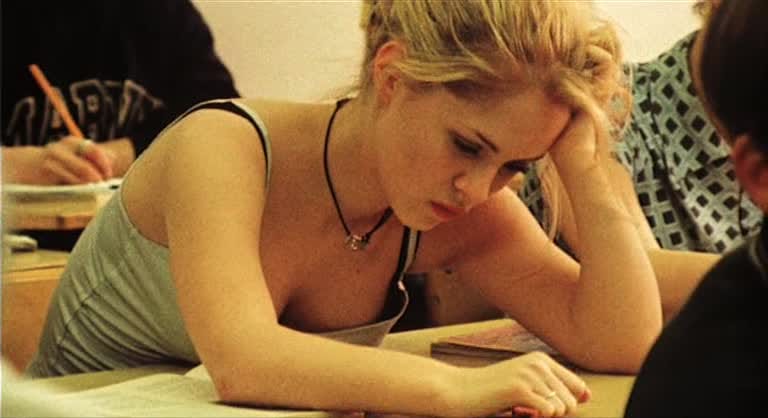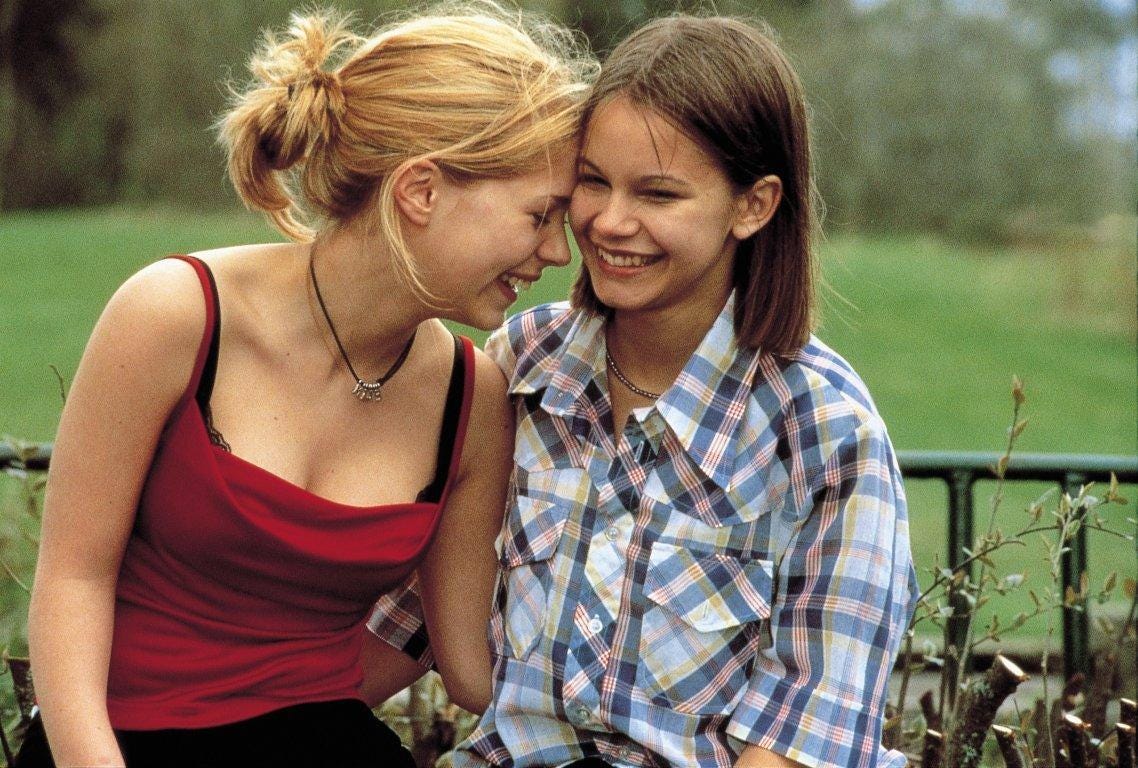fucking åmål (show me love)
Film, 1998
Written and Directed by: Lukas Moodysson
Stories that embrace the lesbian teen experience without condescension are rare, and so very necessary. We've proven we can ridicule and satirise our teenagers on film (both gay and straight) and their real and perceived angst, but seldom does a film come along that is sweet without being saccharine and real without being preachy. Fucking Åmål was all this and more.
Famously, Fucking Åmål outperformed Titanic at the box office in Sweden, which shows just how much the Swedes took this little local film to their hearts. The word spread via film festivals until finally it was given wider arthouse distribution and a DVD release which is primarily how you can find it today, albeit under Show me Love, a sickly title taken from the name of the song in the film's credits.
Fucking Åmål doesn't suffer at all from the silly name change, except to lose some of the built-in claustrophobia the original title carries with it. Åmål is the town in which the film is set, and "fucking Åmål" is the catch-cry of the teenagers who live there, bored out of their minds and longing for anything meaningful to do.
Agnes (Rebecca Liljeberg) and her family have moved to Åmål from a larger town, and even after two years Agnes has failed to settle in and make friends. She's the school outcast, miserable and alone. She's also struggling with her sexuality and her painful crush on Elin, one of the prettiest, most popular girls in the school.
Elin is a typical bored teenager obviously acting out, mowing down everything in her path, including her long-suffering mother and sister. She's pretty, popular, precocious and unbearable. She can't even stand herself, which explains her attempts to forget who she is through alcohol and selfish behaviour. After hearing Agnes is rumoured to be a lesbian, Elin kisses Agnes on a dare, thus setting events in motion that lead Elin not only to question her own selfish existence, but her sexuality as well.
Agnes is so real. Her misery is palpable, her intensity so familiar from that stage in life we all went through when everything seemed so damned important. Incredibly, what rescues Agnes is that, despite her claims to the contrary, she never runs out of hope. She makes remarkable leaps of faith to reach out towards this girl who, at first glance, seems unworthy of her affection. Agnes sees qualities in the fickle Elin we don't, that we must come to see, which make all the pain worthwhile.
Elin for her part does everything she can to make Agnes's life miserable. She confirms to everyone that Agnes is gay. She starts going out with a shy older boy, partly to fool her bewildered sister but mostly in a vain attempt to fool herself. Agnes endures the taunts and watches with a gloomy sense of the inevitable, but never truly gives up on what she really wants.
Agnes must also cope with her well-meaning family. Her mother reads her diary and is shocked to find out about Agnes's sexuality. An attempt to confront Agnes with the truth goes horribly wrong. Her father attempts to pull his beloved daughter from her misery with promises that it gets better, but Agnes responds with a magnificent observation; it's all well and good to tell teenagers that it is outcasts who become successful, but stories of happiness years from now are little comfort to a teenager. The future is something that will happen, but feelings and emotions and raging hormones are the realities of now.
Our teenage years are a minefield of choices and possibilities. No one embodies that more than Elin who is a smart girl with ambition but no focus. Her single mother, worn down by the stress of work and raising two girls on her own, has disengaged and try as she might, cannot seem to connect with her strange youngest daughter.
Elin is different. Agnes sees that all along, but it takes us almost an entire film to see the truth. She's just like Agnes, struggling with the truth of who she is, but experiencing that flipside of basic teenage truths: you can be the most popular kid in school and still feel like an outcast if deep inside you know that everything you're doing is simply to keep up an image you don't believe in.
In the end we know Elin must make a leap of faith as big as the ones Agnes has made for her. Even hurt to the point of wanting to kill herself, Agnes is able to recognise and seize on the chance for happiness when it finally comes. The acting is so natural I felt uncomfortable at times, as if I were peeking into the lives of this bunch of emotionally and sexually charged teenagers.
The children here are cruel, merciless and extraordinarily naive, just like we all were at that age. Fucking Åmål neither condemns nor condones the paths any of the characters choose. What we see is the aftermath, for good and evil. Who gets the girl, who doesn't. Who suffers the most, who gets left by the wayside. One gets a sense that even though the last few frames are happy that this is simply the calm before the storm. We're sorry to have to leave because even in this boring little town with nothing to do, there seems to be so much more story to tell.







It's a real good movie with that typical Scandinavian or Swedish touch.